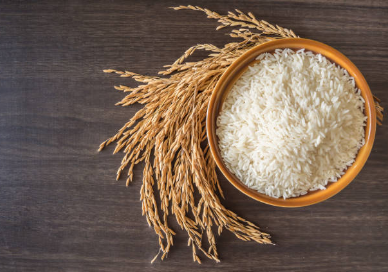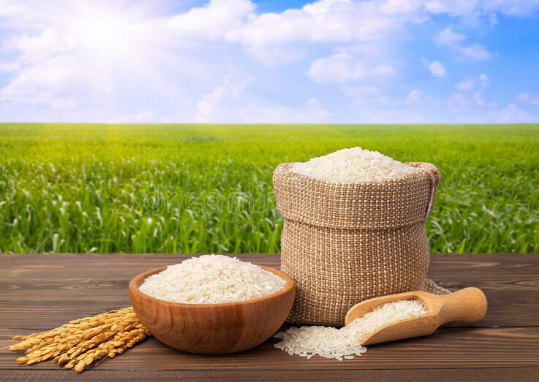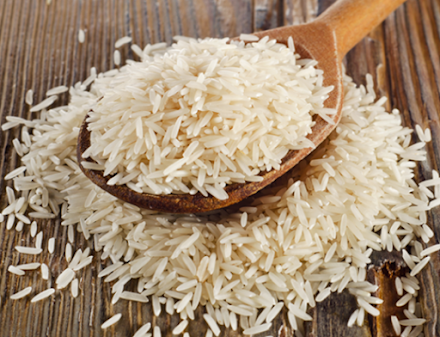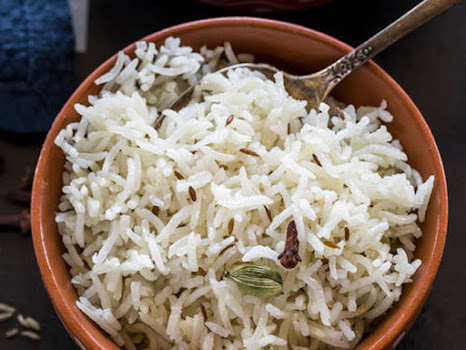Why Organic Basmati Rice Is A Healthier Option
The humble grain of rice is distinguished by its variety in length, shape, texture, color, and aroma. It is therefore not surprising that it is a staple food in South Asian countries.
In Pakistan alone, there are between 60,000 and 1 10,000 varieties of rice! Among these many choices, Basmati rice is the cream of the crop that is the crowning glory of popularity. It figures prominently in dishes such as Biryani and Pilaf, and you can't imagine rice cooking without real basmati rice!
Currently, Organic Basmati Rice Australia is gaining ground as consumers adopt a healthier lifestyle. How does organic basmati rice compare to regular basmati rice? Does organic basmati rice have better nutritional value or additional health benefits? Let's find out!
Basmati Rice: The Real OG
Source
Basmati rice takes its name from the Sanskrit word bāsamatī, which literally translates as "fragrant". This variety of rice has a floral and spicy aroma. In terms of flavor, basmati rice has a soft, grainy, and nutty texture.
One of the most important characteristics of basmati is its special structure. It is one of the longest grains of rice, with conical ends, and it lengthens when cooked. Due to its low starch content, which gives it a delicious spongy consistency, you can't go wrong when cooking basmati rice.
The ease with which you can embellish a dish with basmati rice is another reason why it is a public favorite.
The health benefits of basmati rice:
In addition to its delicious taste and flavor profile, basmati rice offers a host of health benefits. Here's a brief overview:
1) Helps with weight loss
While the scientific community is divided on the role of rice in weight loss/gain, rice has a bad reputation. However, basmati rice is an exception to the rule.
Basmati rice is loaded with amylose, a starch that contributes to its non-sticky, soft texture. A study published in the Journal of Nutritional Biochemistry indicates that amylose slows down the digestion process of the starch, making it feel full. As a result, the body takes longer to digest basmati rice.
2) It is beneficial for diabetes
The slower digestion of basmati rice allows better management of blood sugar. Research in the United Kingdom indicates that the glycemic index of basmati rice is between 50 and 58, meaning it is low to medium GI food. Therefore, basmati is a healthier and more diabetes-friendly alternative to easily digested rice.
3) It is a "Super Grain"
Brown basmati rice is a whole grain because it contains the germ, bran, and endosperm. Therefore, regular consumption of brown basmati rice can provide additional health benefits, such as a reduced risk of type 2 diabetes, cancer, heart disease, and premature death.
4) It is an anti-allergic product
People with food allergies have seen a decrease in their food choices. With products like wheat or dairy products out of the picture, it can feel like the end of the world!
Source
However, basmati rice is a mouthful of hope (pun intended) because it is a food with few allergens (source: South Korean Journal of Pediatrics). Rice is gluten-free, which makes it suitable for conditions such as celiac disease. On the other hand, rice milk can be an excellent substitute for dairy products.
Why Choose Organic Basmati Rice?
In a country like Pakistan, where the consumer is price sensitive, buying something a little more expensive may not make sense. In general, organic products cost more than their regular counterparts. But why is organic basmati rice interesting? That's what we're going to find out:
Better Nutritional Value
Basmati rice has a variable nutritional value that depends mainly on its type. It is generally rich in carbohydrates, with traces of folate, selenium, thiamine, and other micronutrients.
In general, 100 g of cooked white basmati rice contains:
Calories 210 kcal
Protein 4.4 grams
Sugars 45.6 grams
Fat 0.5 grams
Fiber 0.7 grams
Then again, 100 grams of natural basmati rice, when cooked, has the accompanying healthful substance (source: United States Department of Agriculture):
Calories 148 kcal
Protein 3.52 grams
Sugars 32.39 grams
Fat 0.0 grams
Fiber 0.7 grams
If it's not too much trouble note that the above qualities are estimated. Nonetheless, natural basmati rice has a generally lower caloric worth. What's more, there are a few assortments of natural basmati rice that are higher in protein or fiber.
It is advanced
Natural basmati rice isn't just healthfully more beneficial, however, is frequently enhanced to improve its health benefit. For instance, they contain higher dosages of minerals, for example, potassium, zinc, calcium, and iron, just as nutrients, for example, thiamine, folic corrosive, and niacin. In this manner, eating natural basmati rice can help you meet your standard nourishing requirements.
Natural basmati rice is without substance.
Source
Probably the best impediment could be the high grouping of arsenic in rice, which was featured in an investigation distributed by the National Library of Medicine. Arsenic harming can influence mind work. Nonetheless, natural basmati rice contains the least degrees of arsenic (source: Journal of Pediatrics), settling on it the most advantageous decision. Furthermore, natural cultivating includes the utilization of natural composts and other horticultural practices that make the harvest more advantageous, yet additionally help save the planet. So eating natural basmati rice shields you from introduction to synthetic compounds, yet besides adds to manageability!
Last musings
Basmati rice is the best sort of rice on the planet! Its culinary adaptability makes it a profoundly sought-after fixing, regardless of whether you need to steam it or join it with curry.
With everything taken into account, basmati rice is a present for all the faculties. From its unmistakable smell to its smooth, long-grain surface, everything about basmati rice is a verse on a plate!
Regarding medical advantages, earthy colored basmati rice beats white basmati rice. Simultaneously, this natural assortment is healthfully thick and liberated from destructive synthetics. So although natural basmati rice is generally more costly, it merits each paisa you put in!





Comments
Post a Comment